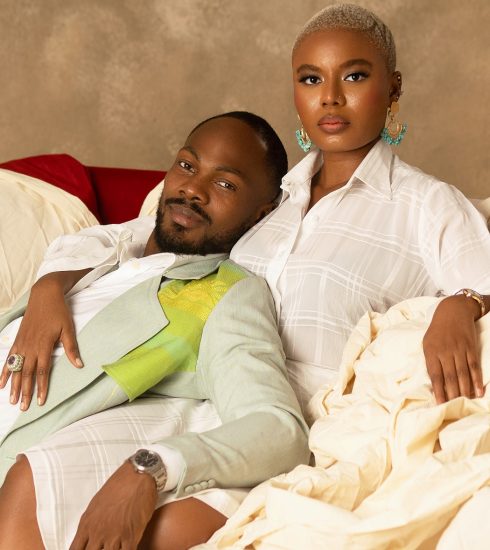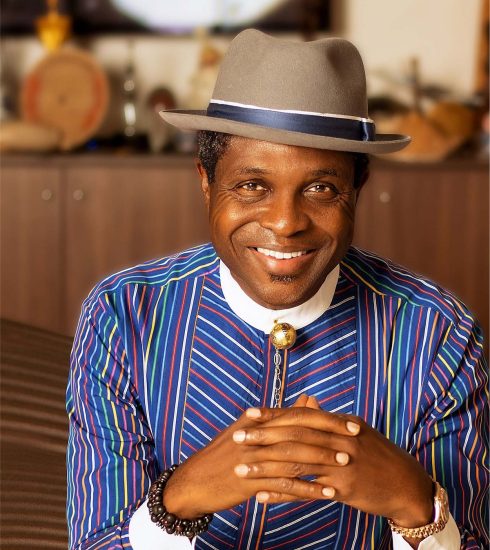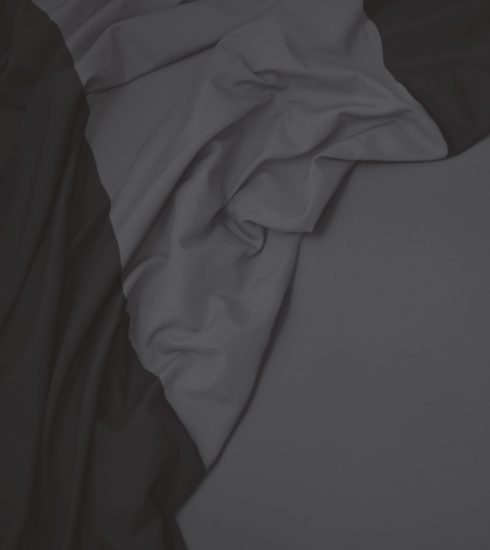Couture Culture: Celebrating Growth in The Nigerian Fashion Scene
Vibrant, creative, culturally expressive, and innovative are just a few words to describe the fashion scene in Nigeria. Nigerian fashion has thrilled consumers locally and internationally with rich traditional textiles, vibrant colours, and intricate designs. In recent years, Nigerian designers and brands have been at the centre of bringing the country’s unique fashion designs to the global stage, gaining both attention and acclaim from fashion lovers around the world.
One of the key factors driving the success of Nigerian fashion brands on the global stage is their ability to blend traditional African influences with modern design elements. From complex Ankara prints to bold geometric patterns and adornments, Nigerian designers have mastered the art of infusing their collections with a sense of cultural heritage while also pushing the boundaries of modern fashion.
Also, Nigerian fashion brands have harnessed the power of social media and digital platforms to showcase their designs to a global audience. With the rise of Instagram influencers, fashion bloggers, and online retail platforms, Nigerian designers have found new means to connect with consumers beyond the local markets. The digital presence has enabled Nigerian fashion brands to reach customers in far corners of the world, and this method of reaching more audiences has created more demand for their unique designs and expanded their global footprint.
In addition, Nigerian fashion brands have been active in forging partnerships and collaborations with international retailers, fashion houses, and influencers. By collaborating with established brands and designers, Nigerian fashion labels have gained exposure to new markets and audiences, further solidifying their global presence.
Here, we recognise some brands that put the Nigerian fashion scene on the map.
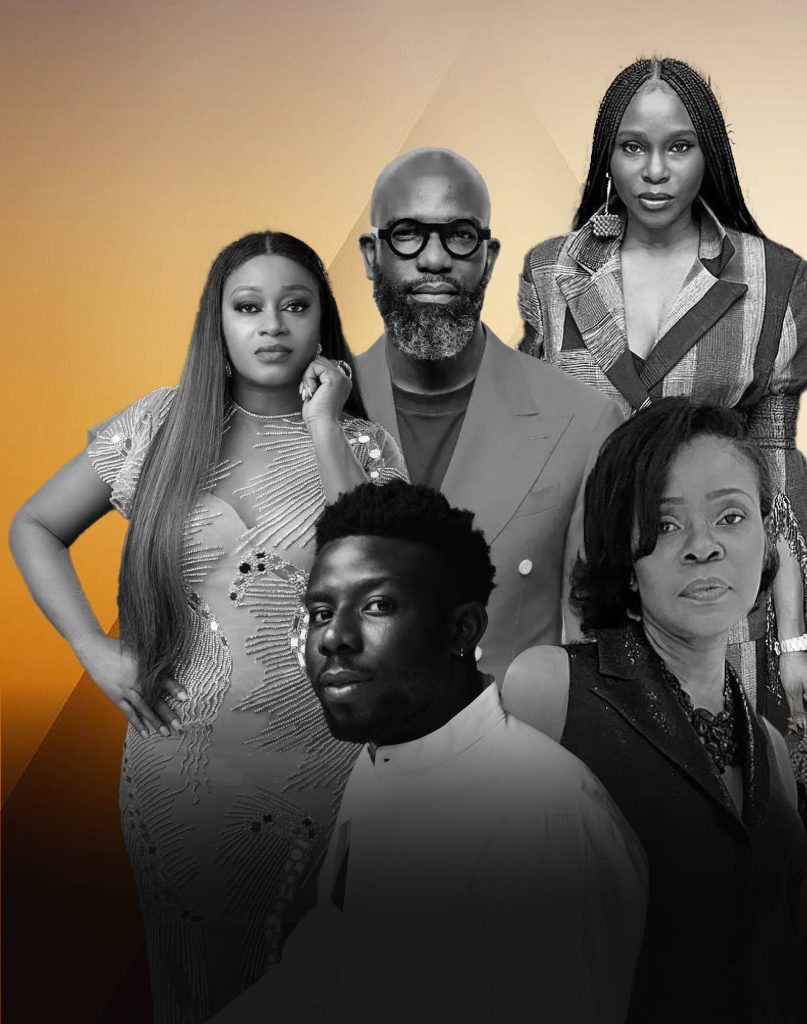
ATAFO
Atafo is an award-winning fashion label known for its exquisite designs, creative craftsmanship, and innovative approach to men’s and women’s wear. Atafo adds luxury and sophistication to suits and traditional Nigerian wear.
Speaking with Ohimai Atafo, the mastermind behind this successful brand, he gave us a brief comment on how Atafo became a reality.
“I started my fashion brand when I was working. I had a 9-5, and I was doing fashion on the side; I was trying to make clothes that I wanted and I couldn’t find; that was where I started. I started Atafo in 2010. I would say the growth has been good; I think we have done quite well in gaining international and global recognition. We feature in movies; we have been put in museums, I have had to speak of my brand on different platforms, Harvard University, you know, in other kind of setting, so that’s growth and we are happy about it.”
For challenges, he had this to say:
“We are trying to survive the Nigerian economy, keep our heads afloat, with what the dollar is doing and the environment being so volatile, I think surviving right now is important, so we are trying to ensure that even our staff survive what’s happening in the country.”
As for future plans for the ATAFO brand, he said:
“We are focusing on the present now, like I said, survive the country. For now, there’s none, we are focusing on the present.”
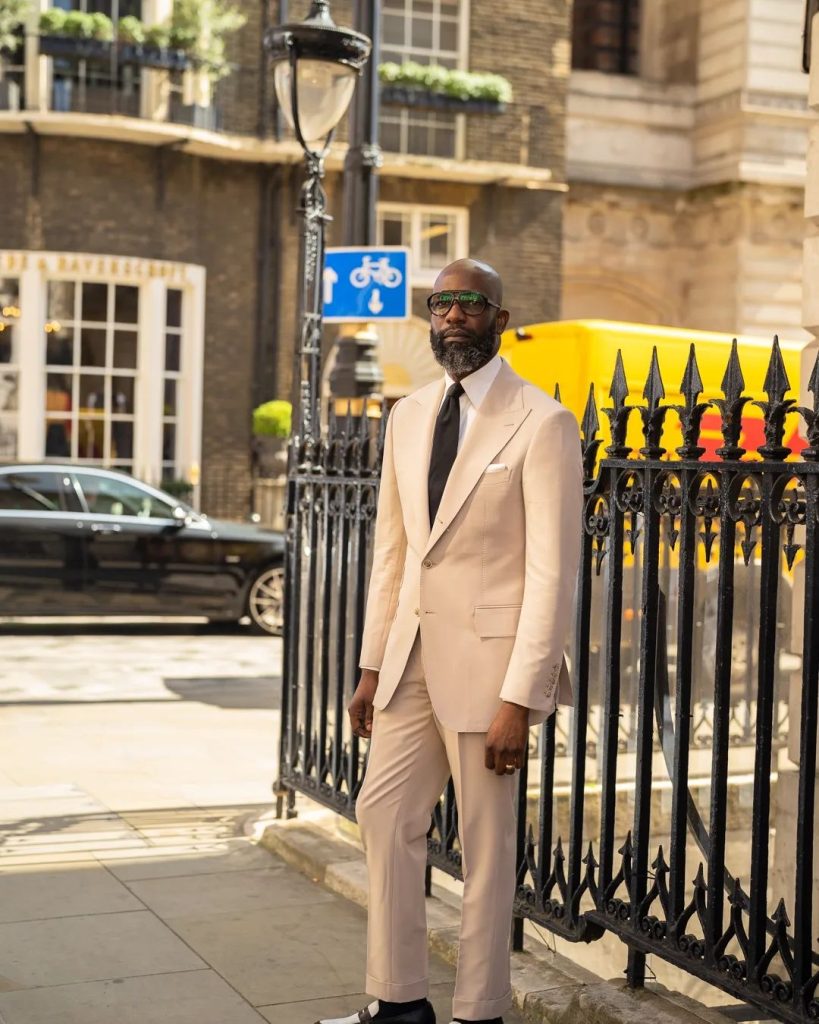
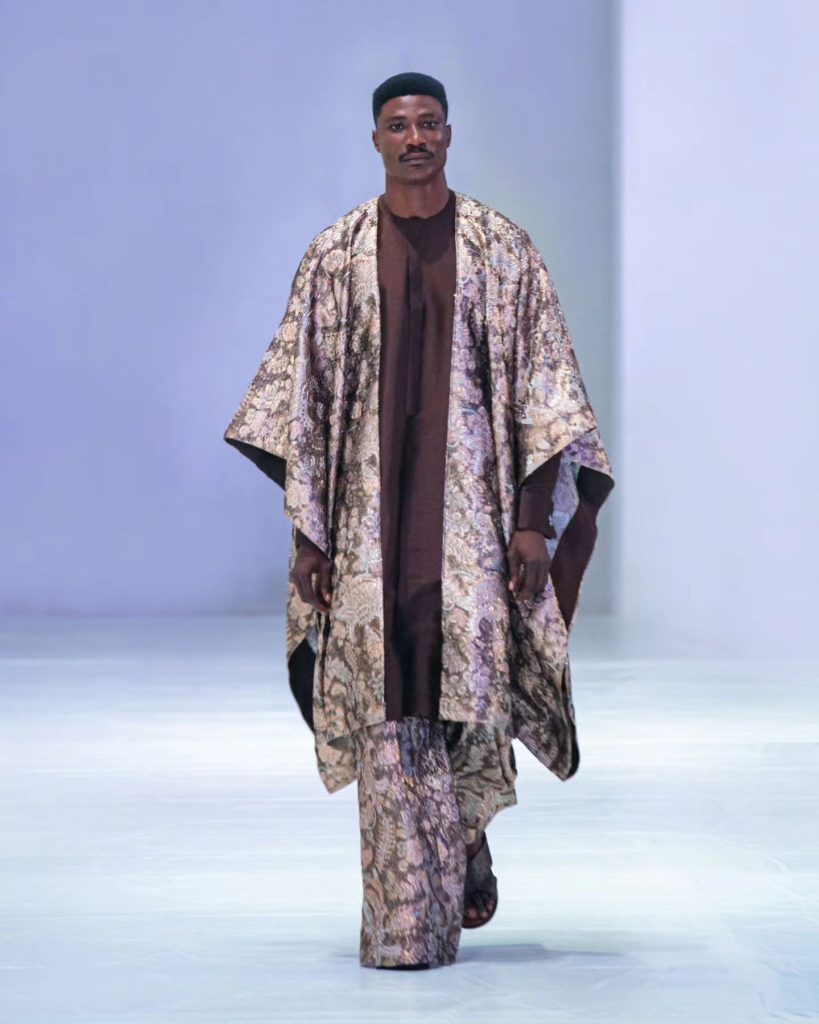
Lisa Folawiyo Studio
Lisa Folawiyo has created a fashion brand renowned for its blend of the Ankara material with modern and trendy designs. Speaking with Lisa Folawiyo herself, she gave us some insights on how she brought her dream to reality.
“Well, with me, what happened was that, after my study and short practice in law, I realised very quickly that I was not cut out for what I thought was the creative space, and I wanted to channel that creative energy through fashion. I needed to move to where I could have my voice heard and fill a gap that I felt was there. I wanted useful, very contemporary clothing that also celebrated my culture, where I am from, while also making use of the resources that were available to me in Nigeria. In addition to that, I am someone who has also loved colours and prints, even while I was younger, I used to do lots of drawing and paintings. I wouldn’t say it was something I was good at, but I just enjoyed it, and all those things together just led me to create the Lisa Folawiyo brand that it is today.”
Speaking on her brand’s objectives, she had this to say:
“The main objective was to create a Nigerian fashion brand that spoke a global language. I remember writing my visions when the brand was brewing; I want whatever I have to do with fashion to be appreciated all over the world, so starting with home, the idea in terms of designs, and who we are as a brand, I wanted it to speak to everyone and anyone wherever you are. I wanted it to be a brand that women all over the world would be able to identify with, understand, desire, and demand. I had the idea of turning the Ankara fabric from something just plain and regular into something more sophisticated and exquisite.”
On challenges, here’s what she had to say:
“I would say the obvious infrastructural situation, you know, the lack of electricity, the market cost, but I think those ones are very obvious for everyone though, particularly when you are working in an environment that doesn’t really enable growth, which is the truth, especially in the creative space. Another challenge in the early stages for me was getting people’s minds to accept that this was a new direction in Nigerian fashion. I didn’t really have the knowledge at the beginning, basically walking in blind, but still growing every day despite not having it all figured out. But I know business is a risk, so challenges are bound to exist.”
When we asked about the future plans for the Lisa Folawiyo brand, she said, “Yeah, we definitely have a show coming up, hopefully in the last quarter of the year, and while we look forward to that, we would keep on working towards growth, all types of growth. For me, I am always working towards getting women intrigued by anything I create, it’s forever my duty, so I am going to be working towards that in the future, even for men’s wear. Just continue creating fashionable pieces that women all over the world can connect with; that’s just the future plan, really, basically the growth of the brand.”
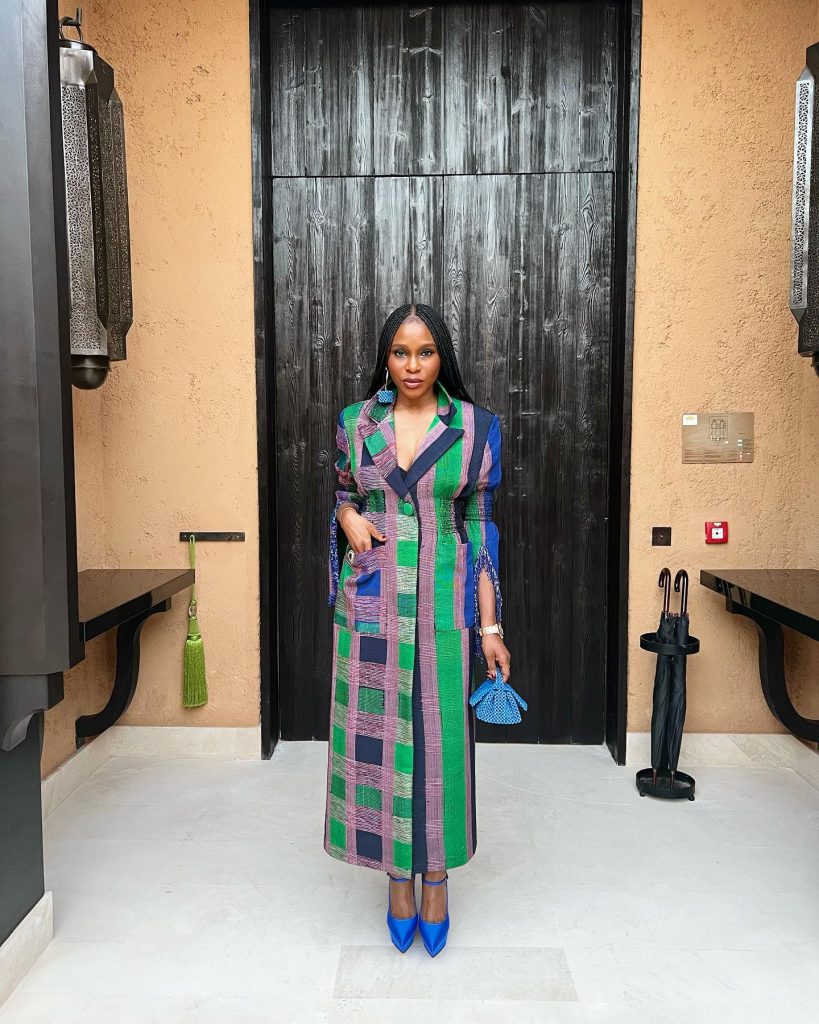
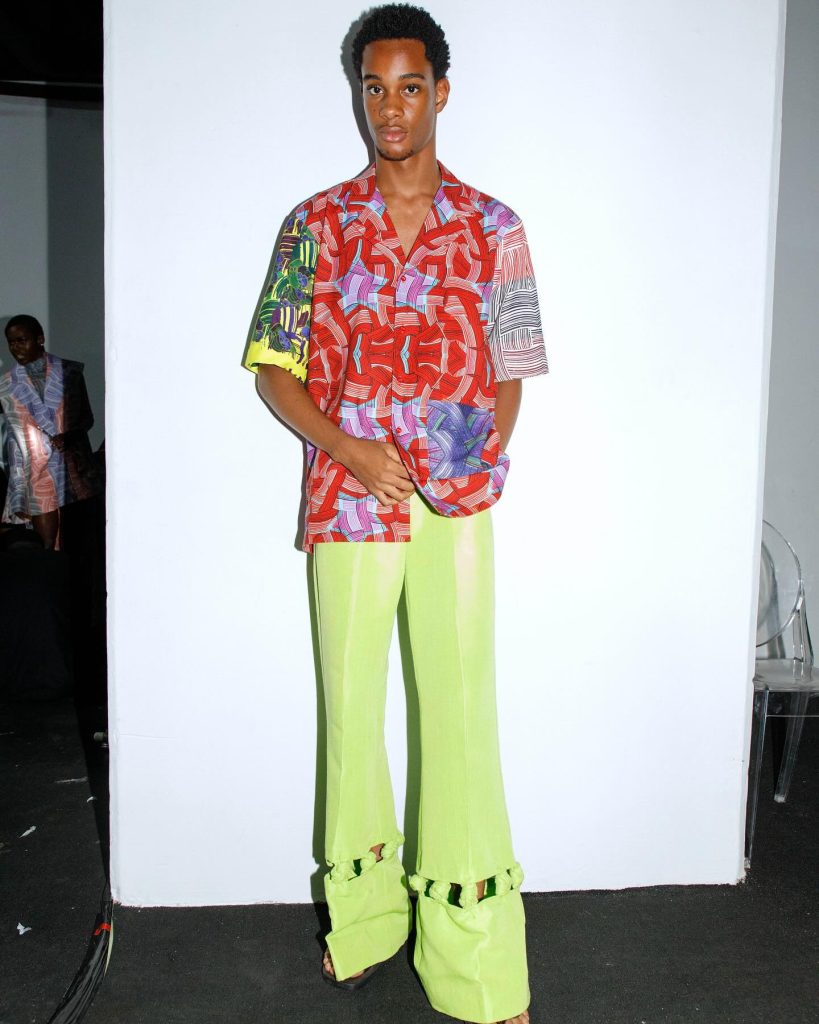
Emmy Kasbit
A prominent Nigerian brand in the fashion scene, Emmy Kasbit is known for its bold and diverse designs that blend traditional Nigerian elegance with modern flair. Growing steadily, Emmy Kasbit is set on redefining African fashion.
Taking out time from his busy schedule, Emmy Kasbit’s founder Emmanuel Okoro gave us a bit of the brand’s origin story.
“I started the brand in 2014, and the sole aim of starting the brand was to change the way the Western world viewed African fashion. So, in a nutshell, I wanted to be one of the designers putting African fashion on the global market and to take these small crafts from a small community to the centre stage, which is the European market, so that’s basically the whole aim of the brand. It’s been 10 years now, and so far, so good, there have been challenges along the way, but I feel like every business in Nigeria undergoes challenges, although I feel like we have been able to circumvent this and find out what works for us, while also mastering the art and how we operate on a daily basis.”
“We are changing the Nigerian fashion scene, but we are also doing it not just for Nigeria but for the whole of Africa; that’s the objective, that’s what we have set out to do, that’s the main goal. I feel like our success wasn’t overnight; even right now, we might not be where we want to be, but we are not where we were yesterday. It’s something we wake up every day and keep putting in the work. It’s been 10 years so far, and at the time that I started, it was just me and just one tailor.”
“For challenges, I would say power, of course, this is Nigeria, and we all know power is a serious issue. Also, access to funding and quality manpower, I mean good tailors. These are the issues we have had to face. Although we have ways to make do with what we have and still put out our work, keep showing up every day, so we are still building the brand.”
He also had this to say concerning the future of the brand.
“The plan is a big one. We just turned 10 in January, and in the coming years, we would want to develop more international presence, get more international stores, and more walk-in stores nationwide cause right now, we have the Lagos HQ, the walk-in store, and we want to do more, so we are looking towards bringing this whole lifestyle to the western market by opening other stores across the world, partnering with international stores too. Also, with the African hub that we are working on, we want to empower more women. These are what we are planning to do in the coming years, and I believe we are on the right track.”
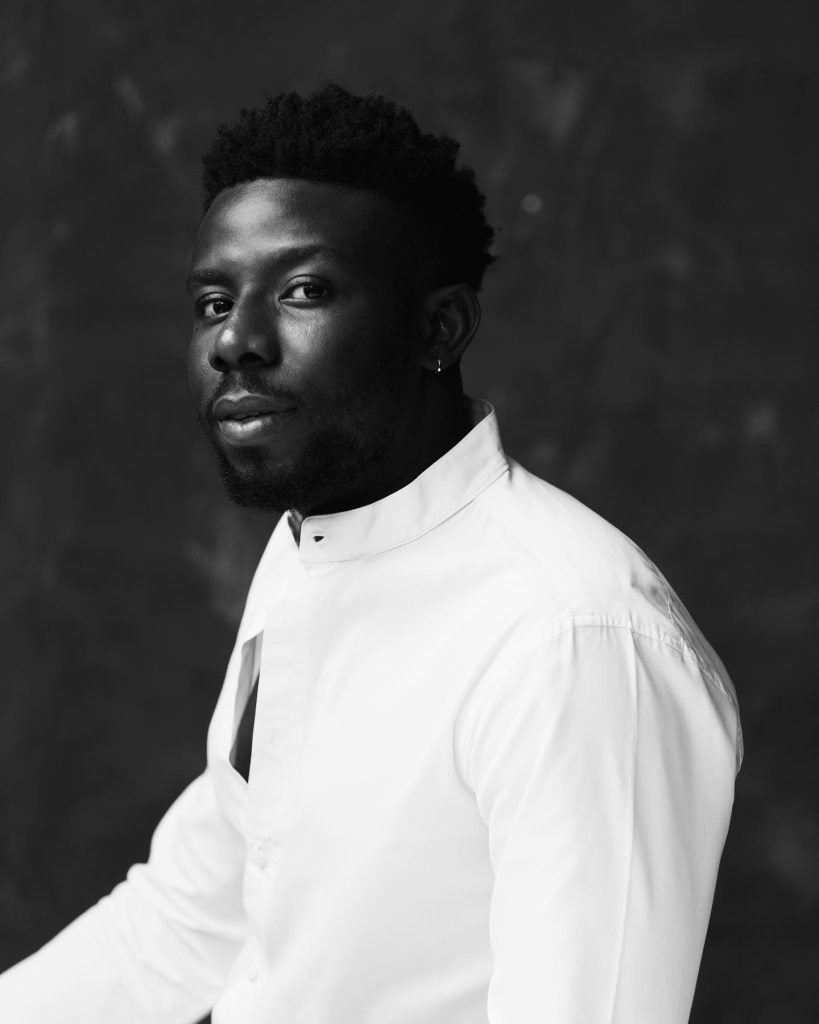

LDA
Announcing itself to the fashion world in 2005, the LDA brand set out to create designs that stand out in the fashion scene, from couture, to ready-to-wear dresses, jewels, and hairpieces, the LDA brand creates collections worthy of appraisal.
Speaking with LDA’s founder and designer, Lanre Da Silva, she had this to say on the origins of LDA.
“My strong passion for the fashion industry was the key driving force that stirred me up to be creative, innovative, different, and unique with my designs.
Back in 2005, when I began, I was into the Victorian-era style of dressing, which was not popular at the time in Lagos. My love for the Vintage era took off whilst, I was studying in the UK.
I would visit shopping spots like Portobello market, London Vintage Fashion Textile and Accessories Fair at Hammersmith Town Hall. I arrived back in Lagos and incorporated my sense of dressing, it was perceived as different, strange, and new at first to people, but gradually people did not mind being different, and they embraced the boldness of my designs. We are committed to delivering excellent customer service to our customers, to be dynamic and innovative, in the production of high-quality clothing that is timeless and unique.”
Commenting on obstacles the brand has overcome over the years, she says:
“Some of the main challenges of the fashion industry in Nigeria is lack of power, capital to stay afloat, and continue in business, and lack of infrastructure. This makes working conditions unbearable sometimes, with overhead costs on the high.”
As expected, there are plans for the future of the brand, and she tells us that “The LDA brand is expanding. I foresee more stockists here in Nigeria, Africa, and Europe.”
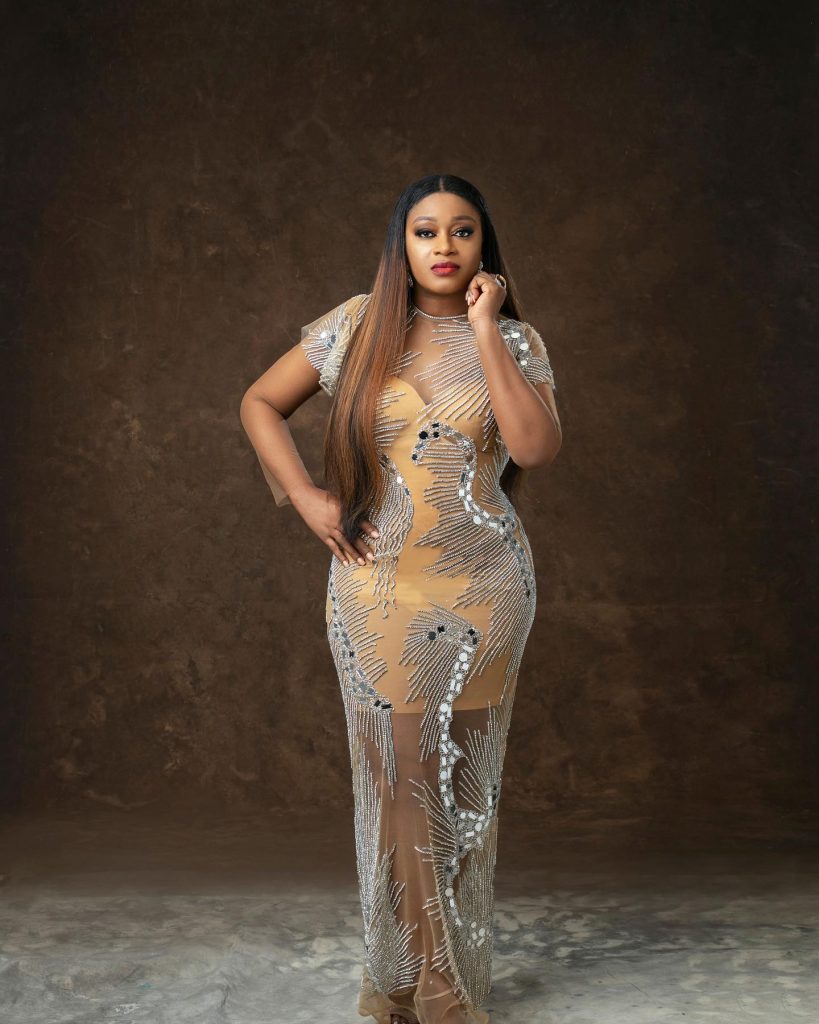
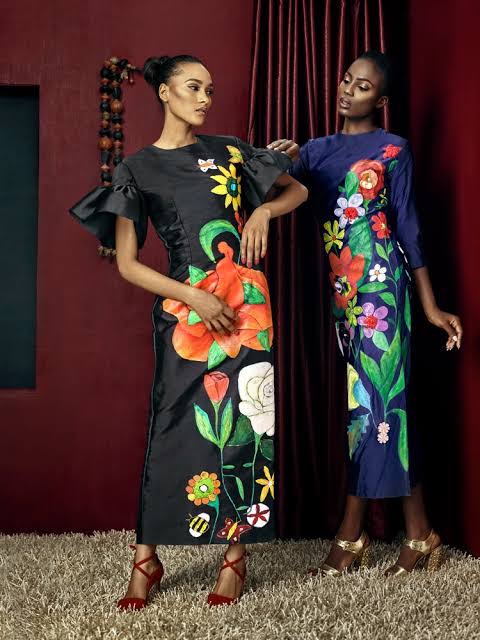
Deola Sagoe
A pioneering fashion brand in Nigeria acknowledged for its finesse, luxury, and creativity, Deola Sagoe was founded by Deola Sagoe herself in 1989, the brand has become a trendsetter in the African fashion industry, redefining traditional Nigerian fabric and designs for the modern worldwide market.
Deola Sagoe’s journey began with a vision to celebrate and preserve Nigeria’s rich cultural heritage through fashion. With a commitment to quality craftsmanship and attention to detail, the brand quickly gained recognition for its signature blend of elaborate adornments, vibrant colours, and contemporary style.
Despite its success, Deola Sagoe’s fashion brand has faced its share of challenges, such as dealing with the reality of economic fluctuations and overcoming logistical and infrastructure constraints in Nigeria’s fashion ecosystem. However, these challenges have only fueled the brand’s determination to innovate and adapt, leading to the development of new strategies and initiatives for growth.
Looking ahead, Deola Sagoe’s fashion brand remains dedicated to its main values of authenticity, creativity, and sustainability. With a renewed focus on expanding its global presence and reaching new markets, the brand is exploring opportunities for collaboration, digital innovation, and social impact initiatives to propel it into the future.
Through its commitment to excellence and its non-stop dedication to showcasing the beauty of African fashion, Deola Sagoe’s fashion brand continues to inspire and captivate audiences worldwide, cementing its legacy as a true icon of African luxury fashion.
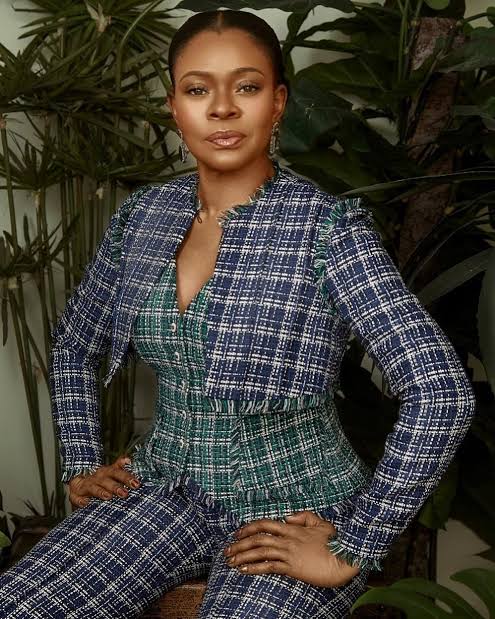
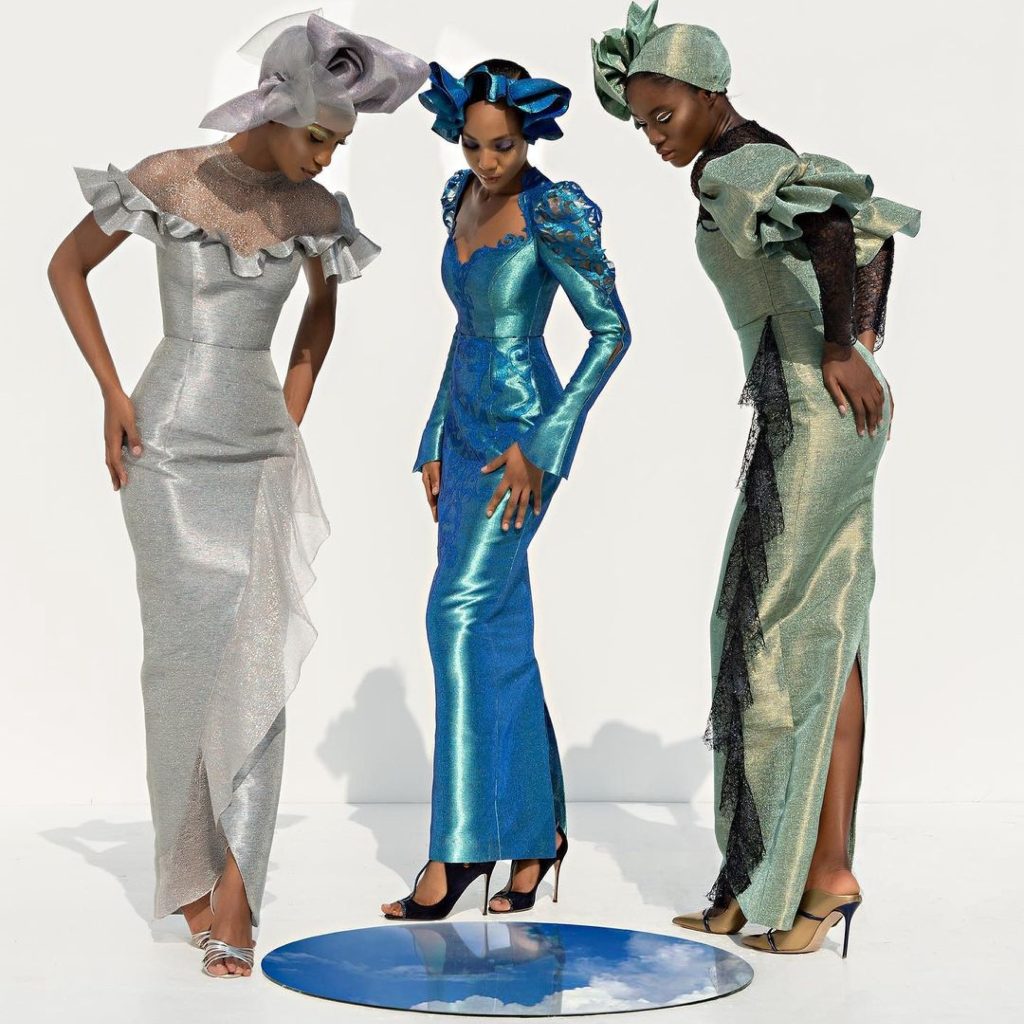
In conclusion, Nigeria’s fashion scene stands as a symbol of creativity, diversity, and innovation on the global stage. From the vibrant Ankara prints to the exquisite craftsmanship of traditional fabrics, Nigerian designers continue to push boundaries, challenge norms, and redefine the narrative of African fashion. With a rich cultural heritage as its foundation, the industry is experiencing tremendous growth, led by a generation of creative and innovative designers, entrepreneurs, and visionaries who are reshaping the landscape and driving sustainable change.




